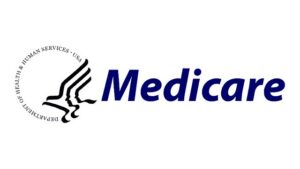What does request mean in the legal space?
What Does Request Mean in the Legal Space?
In the legal field, the term “request” has specific implications that extend beyond its everyday usage. It refers to formal applications or demands made by one party to another within a legal context, often as part of court proceedings or legal negotiations. The Munley Law Glossary provides clear and concise definitions of legal terms like “request,” helping individuals understand how such terms are applied in legal settings. Understanding what constitutes a request and its significance in various legal processes is essential for anyone navigating legal matters. Let’s delve into the meaning of a request, its types, and its applications in the legal space.
Defining Request in Legal Terms
A request in the legal space is a formal act where one party asks or demands that another party take specific action or provide information, documents, or evidence. The request can be verbal or written, though written requests are more common, especially in formal legal proceedings. The purpose of a request is often to obtain information, compel certain actions, or initiate a process that will advance the legal case.
Requests are integral to various legal processes, including civil litigation, criminal law, administrative proceedings, and contract negotiations. Depending on the nature of the case, legal requests may have to meet specific requirements and procedures to be considered valid or enforceable.
Common Types of Legal Requests
Different types of requests are used in the legal space, each serving a unique purpose in the progression of legal matters. Here are some common types:
Request for Production of Documents: This type of request is typically made during the discovery phase of a legal case, where one party asks the other to produce specific documents relevant to the case. These documents may include contracts, emails, financial records, or any other information pertinent to the matter at hand. The request for production aims to gather evidence to support the requesting party’s claims or defenses.
Request for Admissions: In this type of request, one party asks the other to admit or deny certain facts related to the case. The purpose is to narrow down the issues in dispute, allowing the parties to focus on matters that genuinely require resolution. If the responding party fails to respond to the request for admissions within a specified time, the facts may be deemed admitted for the purposes of the case.
Request for Interrogatories: Interrogatories are written questions submitted by one party to another, requiring written answers under oath. These requests are used to obtain detailed information from the opposing party, often concerning the facts of the case, the parties involved, or specific events. Interrogatories are a crucial tool for gathering evidence and building a legal strategy.
Request for Judicial Notice: This is a formal request asking the court to recognize certain facts as true without requiring further evidence. These facts are usually well-known or established beyond reasonable dispute, such as geographical locations, dates of historical events, or the existence of certain laws. Judicial notice can streamline court proceedings by avoiding the need to prove facts that are already widely accepted.
Freedom of Information Act (FOIA) Request: In administrative law, a request for information can be made under the Freedom of Information Act. This federal law allows individuals to request access to records from any federal agency. Such requests are often used by journalists, researchers, or the public to obtain information about government activities.
The Role of Requests in Legal Proceedings
Legal requests play a crucial role in the pre-trial and trial phases of a case. During the pre-trial phase, they are used extensively in discovery to gather information that may not be readily available. Discovery requests, including requests for production, admissions, and interrogatories, help build a party’s case by providing the evidence needed to support arguments or discredit the opposing party’s claims.
In the trial phase, requests may be used to make certain demands or submissions to the court, such as a request for judicial notice or a request to exclude certain evidence. These requests can shape the direction of a trial, determine what evidence will be presented, and impact the legal strategies of both parties.
Legal Requirements for Requests
For a request to be valid and enforceable in the legal space, it must typically meet certain criteria:
- Formality: Legal requests must often be made in writing to be recognized in court proceedings. For instance, discovery requests and FOIA requests are generally submitted through formal written documents.
- Specificity: The request should clearly state what is being asked, whether it is a document, information, or action. Vague or overly broad requests may be challenged or dismissed.
- Timeliness: Legal requests usually have deadlines. For example, responses to discovery requests must be made within a specified period. Failure to comply with these deadlines can result in penalties or sanctions.
- Legal Basis: The request must be grounded in a relevant legal rule or statute. For example, a request for production of documents must be based on discovery rules in civil procedure, while a FOIA request is based on the Freedom of Information Act.
Consequences of Ignoring or Failing to Respond to a Legal Request
Ignoring a legal request or failing to respond adequately can have serious consequences. In civil cases, failing to respond to discovery requests may lead to motions to compel, court sanctions, or adverse judgments. Similarly, if a party does not respond to a request for admissions, the facts in question may be deemed admitted, significantly affecting the outcome of the case.
In administrative law, ignoring a FOIA request can lead to legal action compelling the agency to comply with the request. Courts generally take these requests seriously, as they are often integral to ensuring transparency and accountability.





